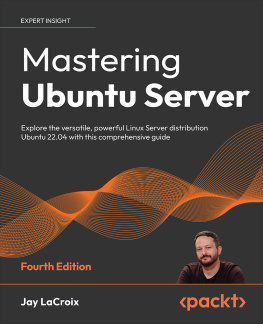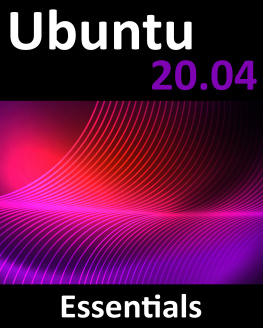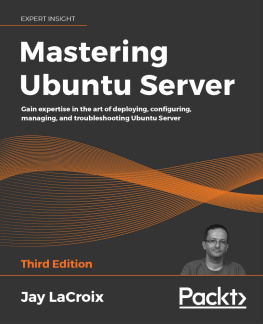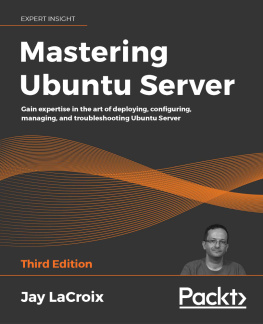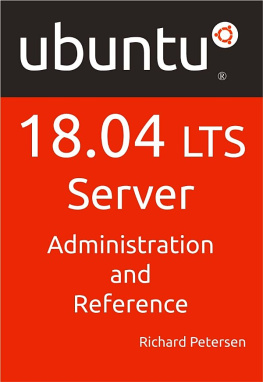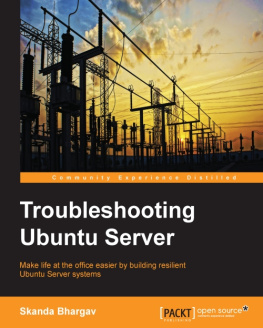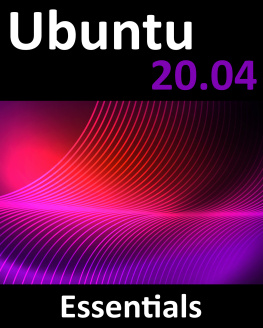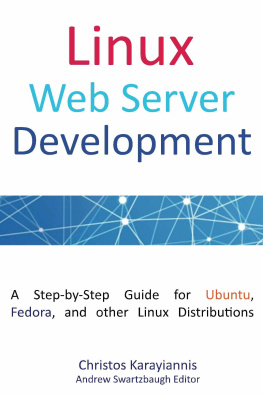First and foremost, I would like to thank Randy Schapel at Mott Community College for conducting a Linux class back in 2002 that was responsible for creating a life-long addiction for me. During a time where Linux wasn't nearly as popular as it is today, that class spring-boarded my career and passion. In addition, I would also like to thank Packt Publishing for the wonderful opportunity I've been given, to share my knowledge with others. I never would've thought I'd be a published author, but here I am. It's hard to believe, but this is my third book, and writing it has been an incredibly enjoyable experience. I would like to thank Prachi Bisht for the opportunity of writing this book in particular, and Trusha Shriyan for supporting me as it was being written. In addition, I would also like to thank James Jones for introducing me to writing for Packt in the first place, back in 2014. I would also like to thank everyone else I've worked with at Packt, who have all been very supportive.
I would like to thank my best friend Krys for being there for me, Jim for his help and support, my two sons Alan and Johnny for being great kids, and my family on the Sherman side for not only being amazing, but also very supportive. I would like to thank the team at Security Inspection for being an amazing group of people to work with.
Last but certainly not least, I would like to thank my readers for their continued support as well as all my viewers and subscribers on my Youtube channel. It's a pleasure and an honor to create content to help you all advance your careers.
About the Reviewers
David Diperna is a Linux system administrator who graduated from Oakland University with degrees in computer science and psychology. His work consists of multiple projects in different areas of Linux, but his main focus is on monitoring and logging solutions. Currently, he is working towards the CompTIA Linux+ and AWS sysops certifications and plans to complete his master's degree in computer science.
I'd like to thank Packt Publishing for the opportunity and Jay for his support.
Robert Stolk is an IT professional and has been working in the IT business for 18 years. He lives in the city of Rotterdam in the Netherlands.
He has experience as a Unix/Linux engineer, storage manager, technical application manager, and functional application manager in the area of ISPs, post office, (mobile) telecommunication, energy, hospitals, tax office, and banking.
He has fair knowledge of and uses the following Linux distributions at home and professionally: Ubuntu, Debian, RedHat, and CentOS.
Currently, he works for Olgreen in Almere, the Netherlands, as a technical specialist.
On his current project, he is the functional application manager of mobile applications.
www.PacktPub.com
eBooks, discount offers, and more
Did you know that Packt offers eBook versions of every book published, with PDF and ePub files available? You can upgrade to the eBook version at > for more details.
At www.PacktPub.com, you can also read a collection of free technical articles, sign up for a range of free newsletters and receive exclusive discounts and offers on Packt books and eBooks.
https://www2.packtpub.com/books/subscription/packtlib
Do you need instant solutions to your IT questions? PacktLib is Packt's online digital book library. Here, you can search, access, and read Packt's entire library of books.
Why subscribe?
- Fully searchable across every book published by Packt
- Copy and paste, print, and bookmark content
- On demand and accessible via a web browser
Preface
Ubuntu is an exciting platform. You can find it everywheredesktops, laptops, phones, and especially servers. The Server edition enables administrators to create efficient, flexible, and highly available servers that empower organizations with the power of open source. As Ubuntu administrators, we're in good companyaccording to W3Techs, Ubuntu is the most widely deployed distribution on the Web in regards to Linux. With the release of Ubuntu 16.04, this platform becomes even more exciting!
In this book, we will dive right into Ubuntu Server and learn all the concepts needed to manage our servers and configure them to perform all kinds of neat tasks, such as serving web pages, managing virtual machines, and sharing data with other users, among many other things. We'll start our journey right in the first chapter, where we'll walk through the installation of Ubuntu Server 16.04, which will serve as the foundation for the rest of the book. As we proceed through the journey, we'll look at managing users, connecting to networks, and controlling processes. Later, we'll implement important technologies such as DHCP, DNS, Apache, and MariaDB, among others. We'll even set up our own ownCloud server along the way.





